2021 Honda CRF300L and CRF300L Rally Announced for US
Just as our man in Toronto, Dennis Chung, surmised at the beginning of December when Honda Europe announced these, Honda’s new and improved small dual-sports will be coming to America. Matter of fact, Honda says the CRF is the motorcycle industry’s top-selling dual-sport.
With both the new CRF300L and CRF300L Rally, the mission was to increase power, reduce weight and improve off-road performance – “all without sacrificing the value, reliability and styling that have played such a big part in the machine’s popularity.” While we understand that functionally these two machines are very much the same aside from the differences in fuel capacity, standard handguards and the Rally’s frame-mounted windscreen, we’ve included Honda’s full press release of both models below.
Additional power and torque were obtained via a 15% displacement increase – from 250 to 286 cc – while off-road performance was improved by adding suspension travel and ground clearance. Meanwhile, overall vehicle weight was reduced 11 pounds, says Honda, primarily by optimizing plate thicknesses and tubing sizes on a myriad of components with the use of Computer-Aided Engineering analysis. Styling cues are carried over from Honda’s CRF Performance line, while MSRP remains “extremely competitive.”
Begin Press Release:
CRF300L
Styling
Through its bodywork and red, white, black and blue graphics, the CRF300L is designed to mimic the look of the CRF Performance line, including the Baja-dominating CRF450X.
Riding Position
The riding position has been revised to enable improved rider input and vehicle maneuverability. Handlebar sweep is increased for a more natural elbow position and lighter steering, and handlebar weights were added to reduce vibration. While the widths of the seat’s rear and middle areas are unchanged for comfort, the front area is slimmer for improved rider input via the thighs and knees. The foot pegs are also moved rearward, simplifying foot operation of the shifter and brake pedal, while the right swingarm-pivot cover is redesigned to reduce width. Passenger pegs are provided as well.
Meter
A new meter features black characters on a white background, and characters are 6 mm larger for improved visibility. In addition to speed, clock and rpm readings, new functions have been added, including gear position, fuel mileage and fuel consumption. The meter is also .01 pounds lighter.
Engine/Drivetrain
Starting with the CRF250L, Honda revised the liquid-cooled, single-cylinder, four-stroke power plant, increasing stroke by 8 mm (63.0 mm total), while leaving the 76.0 mm bore unchanged. This resulted in a 36cc displacement increase, for a total of 286cc, prompting a name change to CRF300L. The longer piston stroke delivers an increase in power and torque across the rev range.
In addition, the camshaft has revised lift and timing to increase output in the rev range’s lower and middle areas, which are used often in both city riding and off-road going.
Intake / Exhaust
The air-cleaner design was revised, and the large, 38 mm throttle body has been retained, while a new exhaust system is incorporated, featuring a lighter header and muffler—this despite a reduction in sound output that was achieved by better controlling vibrations. In combination, these changes deliver improved throttle control, particularly at low rpm.
As before, the engine features a valve train with a rocker-arm design, enabling a compact cylinder head, while the counterbalancer provides smooth running.
Transmission
The six-speed gearbox features updated ratios for 2021, with closer spacing in the lower gears and wider spacing in the higher gears, enabling optimum gear selection while still allowing comfortable high-speed cruising—a great balance between suitability for city, long-distance and off-road applications.
Clutch
Already praised for its light clutch pull, the model gets even lighter pull for 2021 (approximately 20 percent), thanks to a new assist/slipper clutch that also provides improved performance during aggressive downshifting.
Chassis/Suspension
Despite the more powerful engine, overall vehicle weight has been reduced thanks to different construction of many components. For example, the lower triple clamp is now constructed from aluminum instead of steel, reducing weight by .1 pounds. This results in not only reduced steering effort but, because the weight drop occurs high on the vehicle, also a lower center of gravity.
Frame
Through optimization of its main components, the frame’s weight has been reduced by .3 pounds, while lateral rigidity is reduced by 25 percent, improving maneuverability and rider feel: The down tube is 30 mm narrower; the down-tube gusset is smaller; the main pipe is 20 mm shorter; and diameter of the cradle tubes is down 3.2 mm, to 25.4 mm.
In addition, revisions to the frame and crankcase designs enable a 1.2 inch increase in ground clearance, reducing the chance of interference during riding in rough off-road conditions.
The kickstand is stronger to resist bending, and its foot plate is now 10 percent larger for improved vehicle stability while parked.
Swingarm
Similar to the frame, the swingarm’s lateral and torsional rigidity have been reduced by 23 and 17 percent, respectively. Width near the pivot is reduced by 15 mm, and the component’s overall cross section was revised to deliver a more uniform distribution of twist, resulting in better feel and more predictable handling. The swingarm’s weight has also been reduced by .08 pounds—a reduction in sprung weight that in turn delivers improved suspension action.
Suspension
As before, suspension comprises a 43 mm inverted Showa fork and a Pro-Link single-shock rear system. However, suspension stroke has been extended, resulting 10.2 inches of wheel travel front and rear, an increase of .4 inches and .6 inches, respectively. Settings are also revised, and a new rear link and connecting rod are used. The combined result is improved suspension performance, particularly during off-road riding.
Brakes
Hydraulic brakes are used front and rear, with 256 and 220 mm rotors, respectively, and available ABS for smooth, controlled stops in varying conditions. A new rear-brake master cylinder incorporates the reservoir, similar to the design used on the CRF Performance line. This allows elimination of the hose that connected the remote reservoir with the previous design, for a cleaner appearance. Conveniently, ABS can be turned off at the rear, providing a different riding feel in off-road conditions.
Wheels
As with high-performance off-road machines, the wheel sizes are 21 inches at the front and 18 inches rear, enabling smooth rolling over rough terrain. Compared to the 2020 model, the black aluminum rims have been polished, resulting in a glossy appearance and making them easier to clean.
The rear sprocket is thinner in certain areas and is attached with smaller bolts (M8 replacing M10), achieving a .04-pound combined weight savings. The rear axle is now hollow, shaving almost .03 pounds.
Accessories
A number of Honda Accessories are offered, including hand guards, a skid plate, an electrical socket, wider foot pegs, a top box, a rack and more.
- Meets current EPA and CARB standards
- California version differs slightly due to emissions equipment
CRF300L Rally / CRF300L Rally ABS
Designed to evoke images of Ricky Brabec’s Dakar Rally-winning CRF450 Rally, the CRF300L Rally is based on the standard CRF300L but with more fuel capacity, hand guards and a frame-mounted windscreen, suiting it perfectly for longer-distance adventuring without sacrificing nimble performance in city traffic or even trails. Featuring an even larger fuel tank, the CRF300L Rally weighs 9 lbs. less than the outgoing model and gets a 15 percent displacement increase for improved power and torque, making long-distance adventure more attainable than ever.
Styling
For 2021, Honda designers took the existing CRF250L Rally and made it even more adventure-ready, enlarging the tank by 25 percent (.7 gallons, for a total of 3.4 gallons—the most in this class). Considering the model’s excellent fuel economy, range is considerable on the CRF300L—over 250 miles in testing.
As with the Monster Energy Honda factory rally machines, the rear section is kept slim, which enables easy rider movement and concentrates the mass neat the front of the bike. The striking red, white, black and blue graphics mimic the look of the CRF Performance line.
A number of parts have been lightened, including the front fender (down .02 pounds), the side covers (down .05 pounds), the tool box (down .03 pounds) and the license-plate bracket (down .04 pounds).
Riding Position
At the same time, the riding position has been revised to enable improved rider input and vehicle maneuverability. Handlebar sweep is increased for a more natural elbow position and lighter steering, and two handlebar weights (5.8 ounces each) were added to reduce vibration, and rubber platforms were added to the foot pegs for the same reason. The seat gets a new rubber mounting cushion, and it has been widened by 20 mm compared to the standard model, to 190 mm, though the front remains narrow to facilitate the rider’s feet touching the ground when needed. Passenger pegs come standard.
The foot pegs are also moved rearward, simplifying foot operation of the shifter and brake pedal, while the right swingarm-pivot cover is redesigned to reduce width.
Meter
A new digital meter features black characters on a white background, and characters are 6 mm larger for improved visibility. In addition to speed, clock and rpm readings, new functions have been added, including gear position, fuel mileage and fuel consumption. The meter is also .01 pounds lighter.
Engine/Drivetrain
Starting with the CRF250L Rally, Honda revised the liquid-cooled, single-cylinder, four-stroke power plant, increasing stroke by 8 mm (63.0 mm total), while leaving the 76.0 mm bore unchanged. This resulted in a 36cc displacement increase, for a total of 286cc, prompting a name change to CRF300L Rally. The longer piston stroke delivers an increase in power and torque across the rev range.
In addition, the camshaft has revised lift and timing to increase output in the rev range’s lower and middle areas, which are used often in both city riding and off-road going.
Intake / Exhaust
The air-cleaner design was revised, and the large, 38 mm throttle body has been retained, while a new exhaust system is incorporated, featuring a lighter header and muffler—this despite a reduction in sound output that was achieved by better controlling vibrations. In combination, these changes deliver improved throttle control, particularly at low rpm.
As before, the engine features a valve train with a rocker-arm design, enabling a compact cylinder head, while the counterbalancer provides smooth running.
Transmission
The six-speed gearbox features updated ratios for 2021, with closer spacing in the lower gears and wider spacing in the higher gears, enabling optimum gear selection while still allowing comfortable high-speed cruising—a great balance between suitability for city, long-distance and off-road applications.
Clutch
Already praised for its light clutch pull, the model gets even lighter pull for 2021 (approximately 20 percent), thanks to a new assist/slipper clutch that also provides improved performance during aggressive downshifting.
Chassis/Suspension
Despite the more powerful engine, overall vehicle weight has been reduced thanks to different construction of many components. For example, the lower triple clamp is now constructed from aluminum instead of steel, reducing weight by .1 pounds. This results in not only reduced steering effort but, because the weight drop occurs high on the vehicle, also a lower center of gravity.
Frame
Through optimization of its main components, the frame’s lateral rigidity has been reduced by 25 percent, improving maneuverability and rider feel, and frame weight is down .3 pounds: The down tube is 30 mm narrower; the down-tube gusset is smaller; the main pipe is 20 mm shorter; and diameter of the cradle tubes is down 3.2 mm, to 25.4 mm.
The kickstand is stronger to resist bending, and its foot plate is now 10 percent larger for improved vehicle stability while parked.
Swingarm
The one-piece, cast-aluminum swingarm has revised optimized flex characteristics, with lateral and torsional rigidity reduced by 23 and 17 percent, respectively. Width near the pivot is reduced by 15 mm, and the component’s overall cross section was revised to deliver a more uniform distribution of twist, resulting in better feel and more predictable handling. The swingarm’s weight has also been lowered by .08 pounds—a reduction in sprung weight that in turn delivers improved suspension action.
Suspension
As before, suspension comprises a 43 mm inverted Showa fork and a Pro-Link single-shock rear system. Front and rear wheel travel are 10.2 and 10.4 inches, respectively.
Brakes
Hydraulic brakes are used front and rear, with 256 and 220 mm rotors, respectively, and available ABS for smooth, controlled stops in varying conditions. A new rear-brake master cylinder incorporates the reservoir, similar to the design used on the CRF Performance line. This allows elimination of the hose that connected the remote reservoir with the previous design, for a cleaner appearance. Conveniently, ABS can be turned off at the rear, providing a different riding feel in off-road conditions.
Wheels
As with high-performance off-road machines, the wheel sizes are 21 inches at the front and 18 inches rear, enabling smooth rolling over rough terrain. Compared to the 2020 model, the black aluminum rims have been polished, resulting in a glossy appearance and making them easier to clean.
The rear sprocket is thinner in certain areas and is attached with smaller bolts (M8 replacing M10), achieving a .03-pound combined weight savings. The rear axle is now hollow, shaving an additional .02-pound reduction.
Accessories
A number of Honda Accessories are offered, including an electrical socket, wider foot pegs, heated grips, a top box, a rack and more.
- Meets current EPA and CARB standards
- California version differs slightly due to emissions equipment
Specifications | 2021 Honda CRF300L | 2021 Honda CRF300 Rally |
|---|---|---|
| Engine Type | Liquid-cooled, single cylinder DOHC, four valves | Liquid-cooled, single cylinder DOHC, four valves |
| Engine Displacement | 286cc | 286cc |
| Bore x Stroke | 76.0mm x 63.0mm | 76.0mm x 63.0mm |
| Compression Ratio | 10.7:1 | 10.7:1 |
| Max. Power Output | 27.0 hp at 8500rpm (claimed) | 27.0 hp at 8500rpm (claimed) |
| Max. Torque | 19.6 lb-ft. at 6,500rpm (claimed) | 19.6 lb-ft. at 6,500rpm (claimed) |
| Oil Capacity | 0.5 gallons | 0.5 gallons |
| Carburation | PGM-FI electronic fuel injection | PGM-FI electronic fuel injection |
| Fuel Capacity | 2.1 gallons | 3.4 gallons |
| Battery Capacity | 12V-7AH | 12V-7AH |
| Clutch Type | Wet multiplate, assist/slipper clutch | Wet multiplate, assist/slipper clutch |
| Transmission Type | 6-speed | 6-speed |
| Final Drive | Chain | Chain |
| Frame | Steel semi-double cradle | Steel semi-double cradle |
| Front Suspension | 43mm telescopic invertedfork | 43mm telescopic inverted fork |
| Rear Suspension | Pro-Link | Pro-Link |
| Brakes Front | 256mm x 3.5mm disc with two piston caliper | 296 mm x 3.5mm disc with two piston caliper |
| Brakes Rear | 220 mm x 4.5mm disc with single piston caliper | 220 mm x 4.5mm disc with single piston caliper |
| Wheels Front | Aluminum spoke | Aluminum spoke |
| Wheels Rear | Aluminum spoke | Aluminum spoke |
| Front Tires | 80/100-21M/C 51P | 80/100-21M/C 51P |
| Rear Tires | 120/80-18M/C 62P | 120/80-18M/C 62P |
| ABS System Type | 2 channel ABS | 2 channel ABS |
| Instruments | LCD | LCD |
| Headlight | Bulb | LED |
| Taillight | Bulb | Bulb |
| Dimensions (LxWxH) | 87.8 inches x 32.3 inches x 47.2 inches | 87.8 inches x 36.2 inches x 55.7 inches |
| Wheelbase | 57.3 inches | 57.3 inches |
| Rake x Trail | 27.5°/4.3 inches | 27.5°/4.3 inches |
| Seat Height | 34.6 inches | 34.8 inches |
| Ground Clearance | 11.2 inches | 10.8 inches |
| Curb Weight | 313 pounds (claimed) | 337 pounds (claimed) |
Become a Motorcycle.com insider. Get the latest motorcycle news first by subscribing to our newsletter here.
More by John Burns



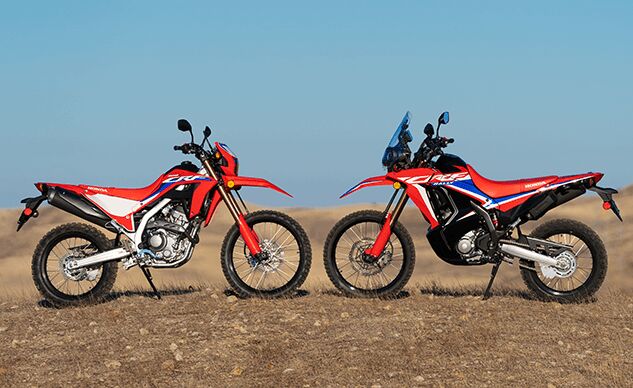
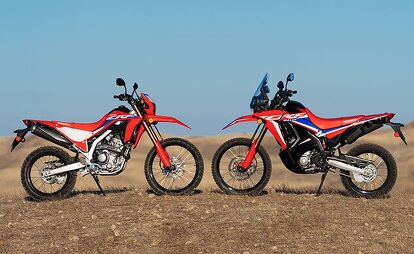












































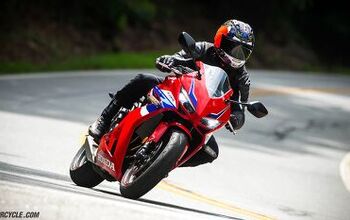

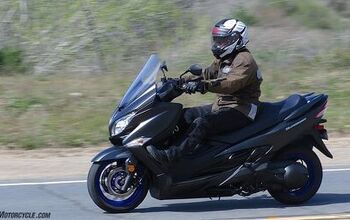
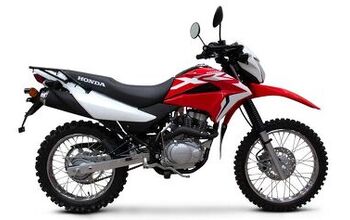
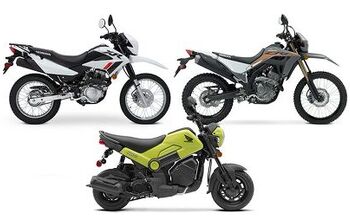


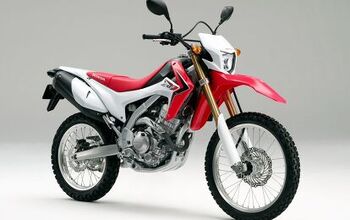
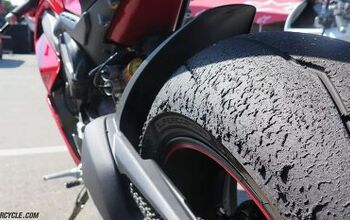
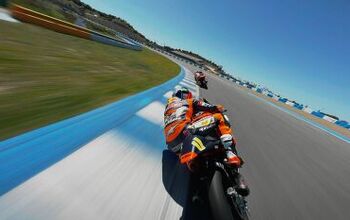
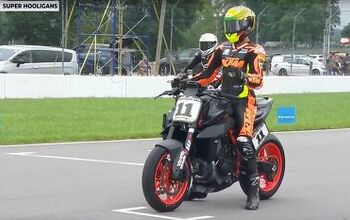
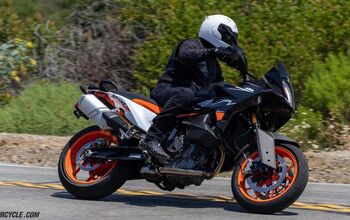
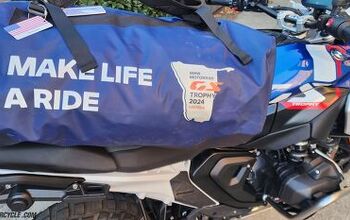



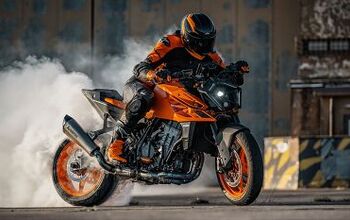
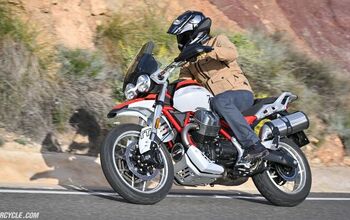
Comments
Join the conversation
When I test rode the 250 Rally after it was released I said "if it only had more power i would buy one..."
My deposit was made today. :) 3rd in line already...
I may consider selling my CRF450L and pick up a 300L or Rally. I didn't end up doing as much off-roading and would be better served by a more street oriented DS. Probably wait until March to let the weather warm up and give me time to see what Kawasaki has up their sleeves at the end of January. Still can't decide if I want to keep my V-Strom 650 and have one of the new 300s or consolidate to a Tenere 700 or whatever 650/700 Kawasaki is likely to release.